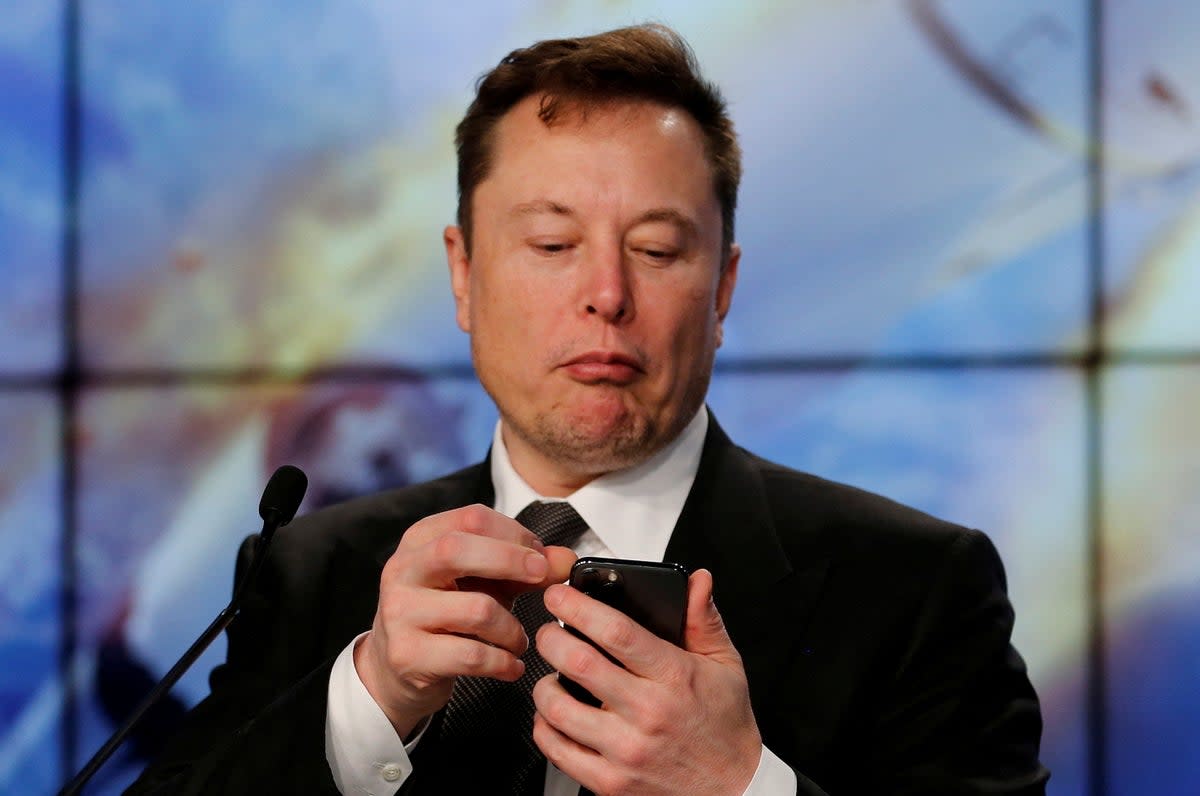Elon Musk says ‘I’m rubber, Twitter’s glue’ after social media company ‘blames’ him for declining revenue

- Oops!Something went wrong.Please try again later.
Elon Musk has said that he’s “rubber” while Twitter is “glue”, in response to the comapany’s statement about him in its earnings call.
Twitter’s revenue decreased by one per cent in its second quarter, “reflecting advertising industry headwinds associated with the macroenvironment as well as uncertainty related to the pending acquisition of Twitter by an affiliate of Elon Musk”.
Subscription and other revenue totaled $101 million, a decrease of 27 per cent year-over-year, while net loss was $270 million, representing a net margin of -23 per cent.
“Given the pending acquisition of Twitter by an affiliate of Elon Musk, we will not host an earnings conference call, issue a shareholder letter, or provide financial guidance in conjunction with our second quarter 2022 earnings release,” Twitter said.
Regarding the purchase itself, Twitter said that “representatives of Mr Musk delivered a notice purporting to terminate the merger agreement. Twitter believes that M . Musk’s purported termination is invalid and wrongful, and the merger agreement remains in effect”. The company has commenced litigation against Mr Musk and had an expedited trial granted to them earlier this week, scheduled for October 2022.
“The exact timing of completion of the merger, if at all, cannot be predicted because the merger is subject to ongoing litigation, adoption of the merger agreement by our stockholders and the satisfaction of the remaining closing conditions.”
In response to Twitter ‘blaming’ Mr Musk for missed earnings, Mr Musk replied: “I’m rubber, they’re glue”.
I’m rubber, they’re glue
— Elon Musk (@elonmusk) July 22, 2022
The saga behind Elon Musk’s purchase of Twitter began when Mr Musk bought 9.2 per cent of the company, which is worth almost $3bn (£2.3bn), on 4 April 2022.
The following day, Mr Musk said he would join the company’s board. After six days, Mr Musk reversed his decision, before making an offer to buy the entire company on 14 April.
However, in May, Mr Musk began raising questions about the number of bot accounts on the platform — despite saying in the April press release that he was purchasing Twitter in order to deal with the spam bots.
Twitter filed to sue Elon Musk last week, arguing the tech billionaire is legally bound to carry out his $44bn acquisition of the social network, after the Tesla chief executive said he wanted to walk away from the deal.
Twitter argued leaving the deal now is “invalid and wrongful”, saying that Mr Musk “apparently believes that he — unlike every other party subject to Delaware contract law — is free to change his mind, trash the company, disrupt its operations, destroy stockholder value, and walk away.”
Mr Musk’s claimed reasons for walking away from the deal is that Twitter did not give him information about fake accounts and spam bots on the platform.
“Twitter has failed or refused to provide this information. Sometimes Twitter has ignored Mr. Musk’s requests, sometimes it has rejected them for reasons that appear to be unjustified, and sometimes it has claimed to comply while giving Mr. Musk incomplete or unusable information,” Mr Musk’s attorney said in a letter to the Twitter board.
Twitter subsequently filed with the Delaware Chancery Court. Mr Musk replied to the news via a tweet: “Oh the irony lol”.
It is unclear who will come out victorious in this case, but in the case that Mr Musk loses it seems unlikely he will be able to simply walk away from the deal without paying a penalty.
Should Mr Musk refuse to buy Twitter despite enforcement from a judge, he could be held “in contempt and set a daily fine until he complies,” Brian Quinn, a Boston College law professor who teaches about mergers-and-acquisitions law, told Bloomberg. “For Musk, that would have to be a rather large number.”
Tesla is also a Delaware corporation, which would give the court the power to go after Mr Musk’s stock options. However, no situation like that has ever happened before.

